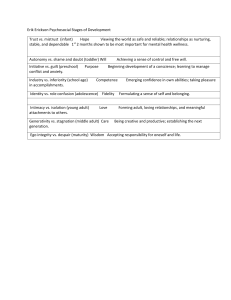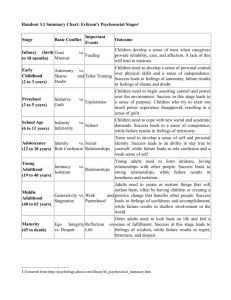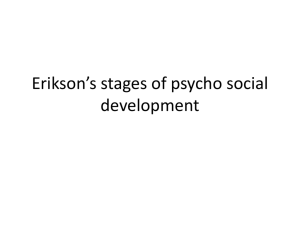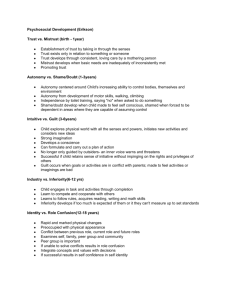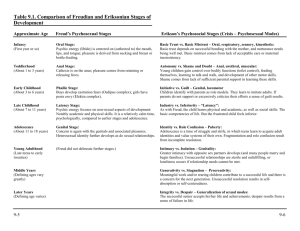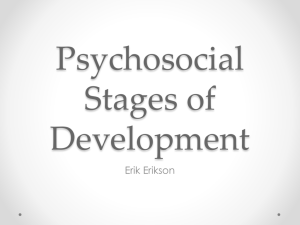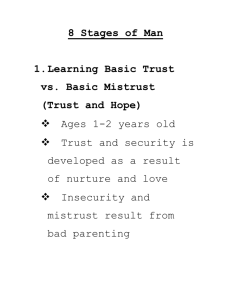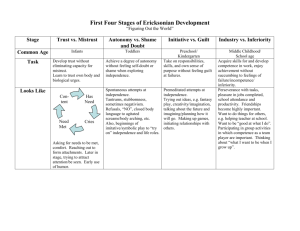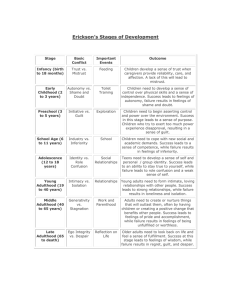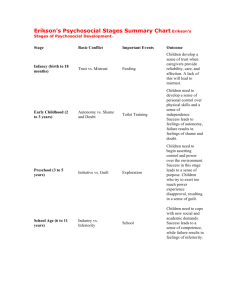Erikson Stage Help
advertisement
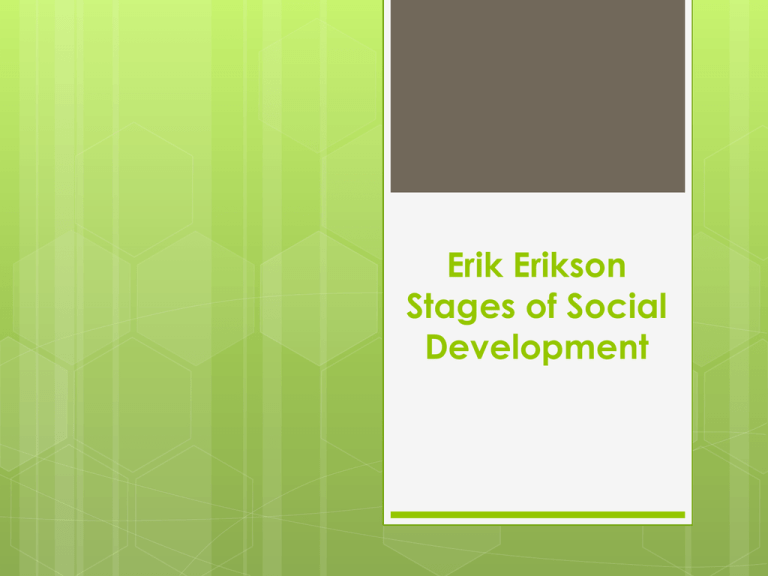
Erik Erikson Stages of Social Development Trust vs Mistrust (Infancy: 0-1) babies need to learn that they can trust their caregivers to fulfill their needs and that their requests are effective sense of trust or mistrust carries for life Autonomy vs Shame (Toddlerhood:1-3) toddlers begin to exert their will over their bodies (autonomy) potty learn training is an early effort at this to control temper tantrums if we learn how to control ourselves and our environment in reasonable ways: we develop a healthy will we can control our body and emotional reactions through following social challenges Initiative vs. Guilt (PreSchool 3-6) natural curiosity about our surroundings ask many questions if our curiosity is encouraged, we will feel comfortable expressing it always if not, we feel guilty and will not express it Industry vs. Inferiority (Elementary 6-Puberty) in first grade, we are asked to produce work that is evaluated if we perform as well as our peers, we feel competent if not, inferiority complex! → anxiety about our performance in that area Identity vs. Role Confusion (Adolescence teens-early 20s) in adolescence, our main social task is to discover what social identity we are most comfortable with maybe try out different roles identity crisis if an adolescent doesn’t figure out a sense of self, they might have one later in life Intimacy vs. Isolation (early 20s –early 40s) young adults figure out how to balance time and effort between work, relationships, and self the patterns we choose become relatively permanent Generativity vs. Stagnation (mid40s – early 60s) we look critically at our life path we try to ensure that our lives are going the way we want Living purposeful life or am I stuck in a rut? Integrity vs. Despair (60s +) toward the end of life we look back at our accomplishments and decide if we’re satisfied if so, we can step outside society and offer wisdom if not, we may fall into despair over lost opportunities
